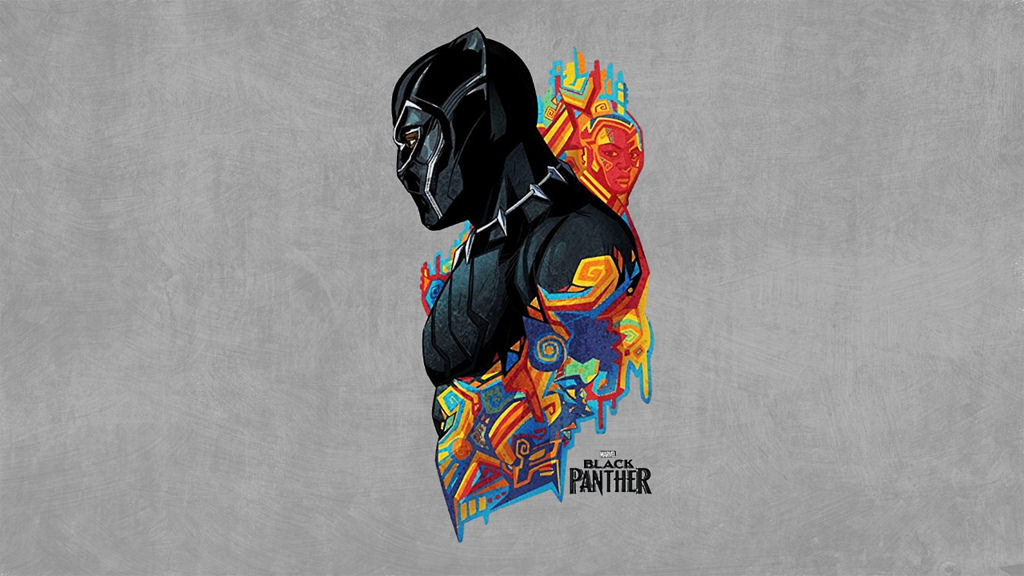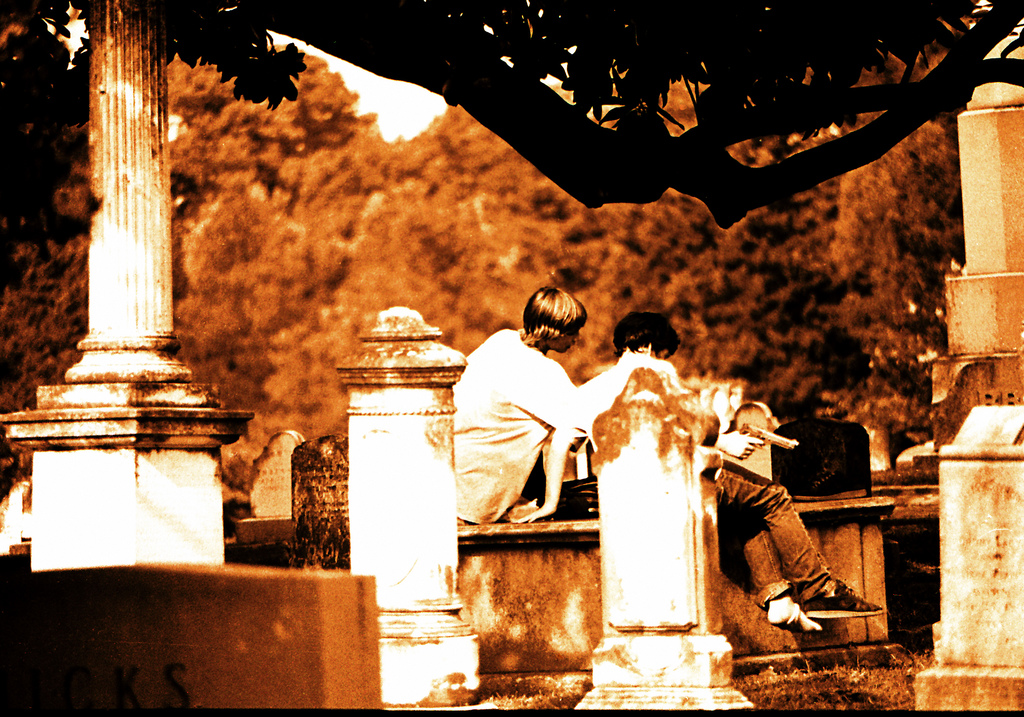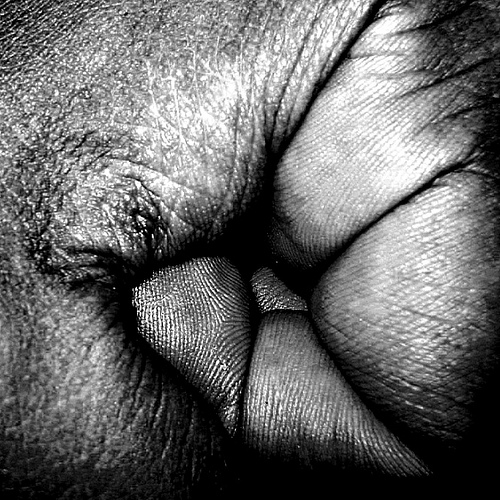In the weeks since I watched Black Panther, the film that, to many, reflects the magnitude of recent gains made in advancing Black representation in U.S. popular culture, I haven’t been able to stop thinking about loss in the African diaspora. About what has been gone, stolen, for centuries—to different degrees and in different ways throughout history, but uniformly stolen.
To be clear, I’m not referring to “what we’ve lost” in the hotep sense of the term. I don’t mean an ancient lineage of queens and kings. I don’t even mean the bountiful natural wealth of Africa (though, of course, that plunder has been continuous since colonizers first set foot on the continent). I’m talking about the ways in which we act in relation to one another and to the planet we live on—how we organize our communities.
Everywhere on this earth, European imperialism has corroded people of color’s historic notions of personhood, altering—if not replacing them—with isolating conceptions of race, patriarchal and transactional conceptions of love, restrictive definitions of gender and sexuality, and brutal understandings of justice. These dynamics present a significant challenge to those of us seeking to change society for the better. We not only have to dismantle the systems of oppression that dominate our world, but replace them with something better. Typically, we don’t learn about that “something better” in school, through mainstream media, or even from the majority of our personal experiences, which all ultimately tend to reflect the broken values of society at-large.
It’s incredibly difficult to embrace ideas that fundamentally challenge everything you’ve been socialized to believe about how society is and should be organized, but the ability to do so is one of the most captivating aspects about the history of our struggle: the Black radical imagination. When Angela Davis speaks of prison abolition, she speaks of a world she’s never lived in. When the real Black Panthers struggled for an “end to the robbery by the capitalists of our Black and oppressed communities,” many died (and many are still imprisoned) for the vision of a world diametrically opposed to anything they had ever experienced.
Through the Black radical imagination, we can disregard what our oppressors tell us about what we should value and what they deem feasible, and fully embrace a separate ideology more suitable to the needs of our people. We can run toward struggle with the belief that though we’ve never lived in the world we desire, we have the power to manifest it.
Presumably, this is why representation is powerful. Presumably, it helps us imagine a world where any Black kid can realistically dream to be Oprah or Barack Obama, or a world where Africans can thrive in an independent nation with technology superior to that of any western power. However, ultimately, what we deem “representation” today casts aside the Black radical imagination, in favor of adopting society’s predominant ideologies.
That’s why in Black Panther, T’Challa and the old guard of Wakanda had to win. The old guard reinforces the legitimacy of hierarchies (a royal family) and patriarchal power structures (the king dies and his son takes takes the throne, rather than his wife, for example), as well as a very European conception of statehood (Wakandans only care to look after those who live within the country’s arbitrary borders). The old guard makes a hero out of a CIA agent—the agency that has caused catastrophic harm to Africa over the course of the past fifty years—while displaying no semblance of solidarity with the Black victims of white supremacy and imperialism all over the world.[1] Even when T’Challa tries to rectify the ills of Wakanda’s non-engagement policy, his two solutions are 1) opening a community center (asking Nakia to put her dreams on the backburner in the process) and 2) working with the UNITED NATIONS![2] T’Challa has nothing to say about mass incarceration, police brutality, U.S. imperialism, or chronic poverty. He has nothing to say about the ways in which capitalists continue to exploit Black communities in every part of the world.
The character who has the most to say about those issues was, of course, the movie’s main villain. The construction of Killmonger’s character might even tell us more about the film than that of T’Challa’s. The reason so many people are drawn to Killmonger is because he provides the most fiery (though not the only—shoutout to Nakia) interpretation of Black people’s global oppression, and the most pointed critique of Wakanda’s isolationist politics. With those ideas forming the backbone of Killmonger’s character, Black Panther would have to try very hard to portray him as a villain. So that’s what they did.
Killmonger inexplicably pairs his revolutionary ideas with nothing but contradictory actions. He brags about his role in killing the people of Iraq and Afghanistan and destabilizing their governments on behalf of the U.S. Army, he collaborates with a white supremacist South African, and he shows a complete disregard for the humanity of the Black people who he says his heart aches for, with a particular disregard for Black women (shooting his romantic partner in cold blood and choking out a got damn old lady!). It could be argued that these contradictions simply indicate Killmonger’s fatal flaw, that he is consumed by a drive for personal revenge against the homeland that abandoned him. Yet, Killmonger isn’t satisfied when he “kills” T’Challa and takes the throne. He actually takes steps to initiate his global revolution, which indicates that his contradictions are rooted in something more than simply a self-consuming need for personal vengeance. Of course, Killmonger’s revolutionary plan is just as nonsensical as the rest of his actions: sending weapons to London, New York, and Hong Kong with no mention of building political consciousness, popular support, or anything of the like within actual Black communities. Just sending weapons. To unspecified groups of people. And who knew that the Black liberation struggle would build its base in Hong Kong?
Really, Killmonger is an incoherently written character with a handful of awesome lines. That’s the way it had to be in order for him to function as a villain. And Marvel (owned by Disney, one of the biggest companies in the world) damn sure wasn’t going to release a movie in which a revolutionary was the hero. So then what is the message of Black Panther? That a select few Black people can be kings and queens? That the CIA and the United Nations are our friends? That radicals are irrational and bloodthirsty? That a Fortune 500 company making hundreds of millions of dollars by commodifying Blackness is somehow a win for our communities?
We need to be critical of what we mean when we speak about the value of representation. While it’s natural for us to feel a rush of emotion when we see Black people represented in ways we’ve been denied for so long, we need to ask if this is what we really want. Do we want to assimilate into a society that we know is fundamentally broken? If it seems as though I’m assigning too much significance to a comic book movie, Black American political development in the years since the decline of widespread radical activity says otherwise. We have more Black academics, politicians, celebrities, and businesspeople than at any other point in U.S. history. The number of Black Americans in the “economic elite” has grown significantly in the past fifty-ish years, but simultaneously, the gap between rich and not rich is widening, and the median wealth of Black families has actually decreased over the past 30 years.[3] Black elites, who tend to favor reformist if not conservative politics, have joined the ranks of the few who benefit off the backs of the many. Somehow we consider this representation “progress” compared to a time when the most well-known Black Americans were those who participated in widespread international struggle against the ills of capitalism, white supremacy, imperialism, and other systems of oppression.
Black Panther is a continuation of this trend toward the idolization of representation in “elite” spheres. A small number of people profit from the movie, the messaging of which reinforces a backward political paradigm, all with the blessing of a huge swath of our community. Black Panther is the pinnacle of our contemporary understanding of representation and a manifestation of the limits of this approach.
At the end of the day, we’ve assigned Black Panther such cultural significance because it captures our collective imagination. It does so because so many of us have been unwittingly conditioned to move away from our radical tradition and adopt the broken values of American society. Conditioned to view the existence of Black faces in high places as a sign of progress, as if those high places aren’t anti-Black at their core. So we have a choice: to be content seeking out places where we can fit into this fundamentally broken society, or to reignite our radical imagination, to define real ways to improve our people’s collective standing in this world, and to struggle toward that vision. The latter will be more difficult, of course, but that’s the tradition we come from. Glorifying elites and seeking validation in the current system? We can let the colonizers keep that.
Note: For obvious reasons, I centered the experiences of Black people in this piece, but because the allure of capitalistic individualism is seemingly ubiquitous, I truly believe these ideas apply to all colonized people.
[1] “Four more ways the CIA has meddled in Africa,” BBC, May 17, 2016.
[2] Morley, Daniel, “The United Nations: a tool of imperialism,” In Defence of Marxism, February 26, 2016.
[3] Dedrick Asante-Muhammed, Chuck Collins, Josh Hoxie, and Emanuel Nieves, “The Ever-Growing Gap,” August 2016.



